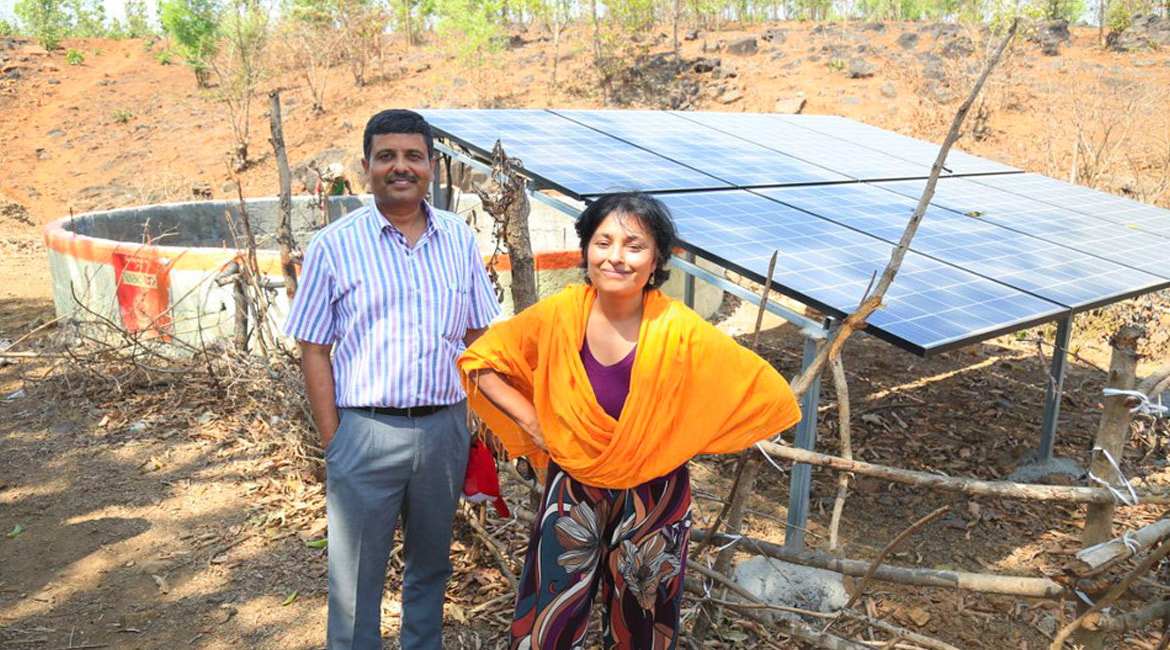|
Green Jobs create a solution to climate change
With pressure mounting on families to sustain their livelihoods, there is a continued trend of migration from rural to urban areas. Low literacy levels, lack of sustainable livelihood options, indebtedness, and climatic degradation are some of the factors pushing young people to move to lucrative low-skill jobs that are often available in cities. Pressures building on resources in cities and crowdedness due to migration often cause health issues in young people. Very few organisations are seriously thinking on the lines that jobs can come from traditional sectors such as agriculture, manufacturing and construction as well as from emerging green jobs sectors such as harnessing renewable energy, water conservation, waste management, solar power harnessing and so on. The Government of India has an active policy in support of sustainable development, which includes the adopted National Action Plan on Climate Change (NAPCC).[1] Climate change education in India Climate change as a phenomenon has greater relevance to women and more so disproportionately impacts women in India given the intersection between poor climatic conditions and socioeconomic status, gender, class, ethnicity, age, and disability.[2] For example women and girls living in high water stress regions in India will face accentuated and acute problems, as in many regions in South East Asia including India, local reservoirs like lakes, streams, wells, etc are drying-up, young people, especially girls and women will spend higher amount of time in search of sufficient and clean water and in-fact may have to walk longer distances. This essentially means, more time away from education and learning. Literature and studies have suggested that countries that have traditionally struggled with the perils of climatic change (for example coastal locations that have suffered because of Tsunamis) have indeed included modules in school curriculums. In India, climate change information is embedded in curriculum for middle school students in coastal India, to generate awareness on current climate impacts.[3] Social sector organizations like Turn the Bus can impact multitude of issues through their efforts of introducing green jobs. Green jobs could directly and substantially resolve the problem of lack of livelihoods in rural India and its’ impact can be estimated based on the population and an assumption of the percentage of youth who are likely to adopt sustainable practices. It is an encouraging pursuit but it needs nurturing and investment. This is a sector with a huge potential to grow (about 721,000 Indians are employed in the sector)[4] and contribute to the Indian economy and add to climate change solutions. In India we still need investment in skilling young people and bring them closer to respectable and sustainable jobs given that 30 percent of the Indian population are below poverty line.[5] For India there is a great potential in strengthening the links between education and employment. Turn the Bus uniquely positioned as this is recognised as one of the tracks which will reap benefits in future as India advances towards Sustainable Development Goals. [1] A review of decent work and green jobs in Kaimur district in Bihar, ILO and Development Alternatives, 2010 [2] S.S. Yadav, Rattan Lal, Vulnerability of women to climate change in arid and semi-arid regions: The case of India and South Asia, Journal of Arid Environments, Volume 149, 2018, [3] Martha C. Monroe, Richard R. Plate, Annie Oxarart, Alison Bowers & Willandia A. Chaves (2017): Identifying effective climate change education strategies: a systematic review of the research, Environmental Education Research [4] https://scroll.in/article/936135/creating-green-jobs-could-help-address-both-unemployment-and-environmental-degradation-in-india [5] Shanghi S, Sharma J. Local development strategy, green jobs and skills in the Indian context. Greener skills and jobs. 2014 Feb 13:179.
0 Comments
Leave a Reply. |
Archives
March 2024
Categories |
21213 SE 42nd Pl.
Issaquah WA 98029
Issaquah WA 98029
Turn the Bus is a registered 501 (c) (3) US nonprofit organization.
© Turn the Bus. All rights reserved.
© Turn the Bus. All rights reserved.


 RSS Feed
RSS Feed
